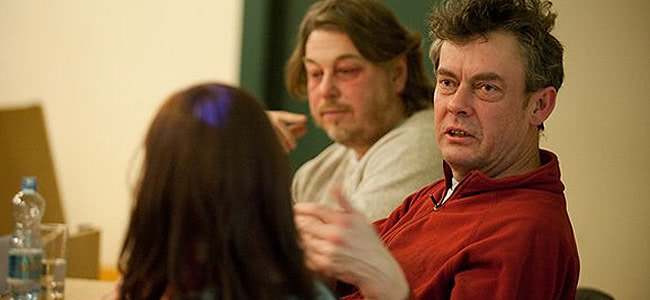The live music scene has been feeling considerable pressure nation-wide as of late, but none more-so than Adelaide, whose music culture has undergone a state of flux with a number of changes introduced by the South Australian Government in the last month or so.
Following the recent introduction of hefty new liquor licensing fees, with new tariffs for late night venues; vastly affecting the business and culture of many Adelaide-based clubs and live music venues, Premier Jay Weatherill then played the white knight and announced plans to introduce a music expert to work in collaboration with the Premier’s office to develop strategies of overcoming newly introduced planning and licensing issues, the very same policing strategies he helped implement.
Today, the Premier introduced the man charged with reviving Adelaide’s flagging live music scene, the City of Churches’ new Thinker In Residence Martin Elbourne.
The Herald Sun reports that Mr Elbourne is looking to establish a ‘cluster’ where the creative industries of the arts and music spheres will be located together within the CBD, and is looking to implement his expertise to revitalise Adelaide with a number of trips to South Australia – starting with next week.
The London-based Elbourne, who co-founded the international WOMAD arts festival, has had his experience as the chief band booker for UK’s esteemed Glastonbury Festival, and his three decade long career also includes time managing iconic British bands The Smiths and New Order.
“Music goes hand in hand with other creative things. If Adelaide is to thrive, it has to have a creative cluster. It’s musicians, it’s artists, digital companies… anyone creative,” Elbourne says.
The new Thinker In Residence will be investigating licensing issues, opportunities for local performers and musicians and focussing on industry development, he first plans to speak to the managers of the live music venues located within the CBD in order to generate a report and plan to the SA Government.
Premier Weatherill was proud of the election of Mr Elbourne to the position, saying he’d bring his wealth of experience to the role, and in turn Adelaide, working together to create an encouraging environment for music culture.
“In the 1970s and 1980s Adelaide was a vibrant music city so we know it’s possible,” said the Premier.
Though titled Thinker In Residence, Mr Elbourne’s residency will only be temporary. His first visit to Adelaide is next week, but his next scheduled appearances are in November and May next year, so it’s going to take a pretty well-conceived strategy, and the SA Government’s concerted co-operation, to roll out a plan that will be sustained between the large intervals of his absence.
Additionally, though Elbourne has an impressive CV that could offer a wealth of information, the large majority of Adelaide’s problems seem to be specifically local. There are many more local industry figures who would already be familiar with the nuances of the Australian music scene than Glastonbury’s band booker might be able to offer – considering he must first familiarise himself with Adelaide before he can address its stifling issues.
The larger question is what does the SA Government really hope to learn from an outside perspective in a few mere weeks and a report?
While the announcement of Elbourne’s position is encouraging, it’s difficult to shake the notion that it could be little more than window dressing to disguise the suffocation of licensed venues – and in turn live music – in the name of safety.
Alcohol-related violence is a chief concern for Premier Weatherill and the South Australian Government, who yesterday announced the introduction of a new code of practice for licensed venues that will ban shots, glassware and introduce scanning IDs, a move that’s part of broader measures to curb increased violence along with more police enforcement and education program targeting the consequences of aggressive behaviour when drunk.
The move follows the South Australian government’s recent introduction of hefty new liquor licensing fees, with new tariffs for late night venues; vastly affecting the business and culture of many Adelaide-based clubs and live music venues.
It also came at a fragile time for licensed venues after the loss of venues like The Crown And Sceptre in July, and the soon-to-be-closed Jade Monkey.
In response, Business Services and Consumer Minister John Rau introduced potential hope in the grim atmosphere of the city’s dwindling music scene, with the introduction of new, cheaper licenses aimed at creating laneway bars and ‘hole in the wall’ hotspots across Adelaide’s CBD, similar to Melbourne and Sydney’s night culture.

































